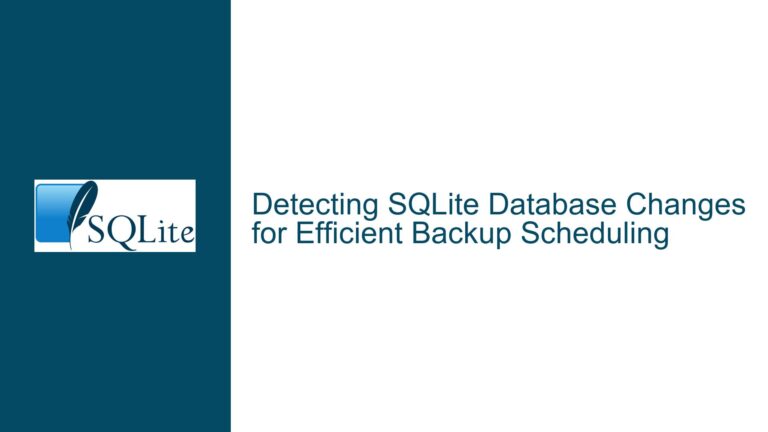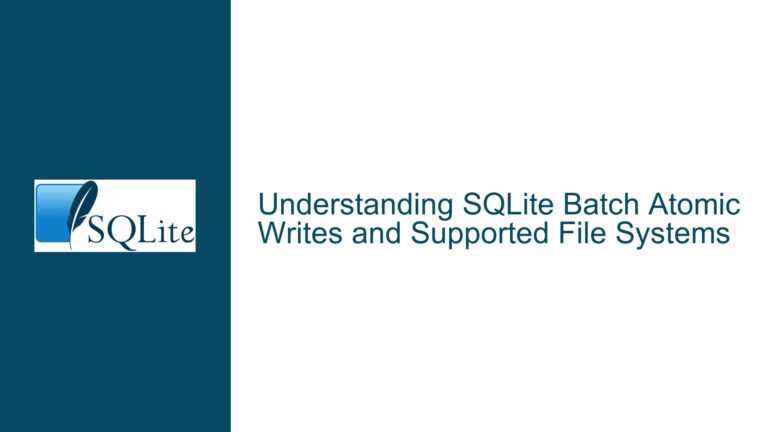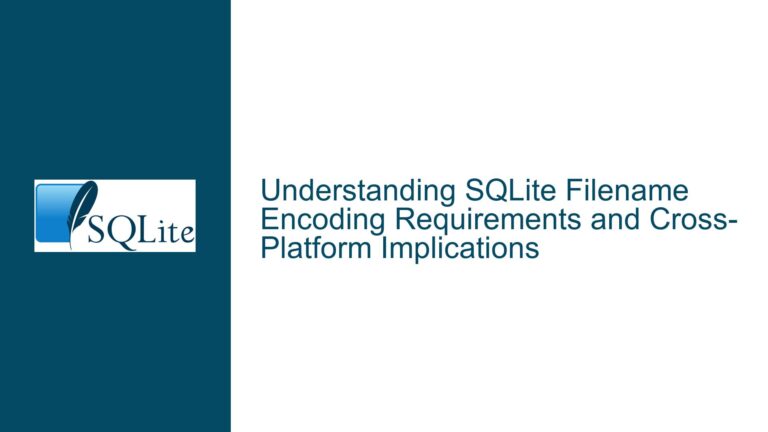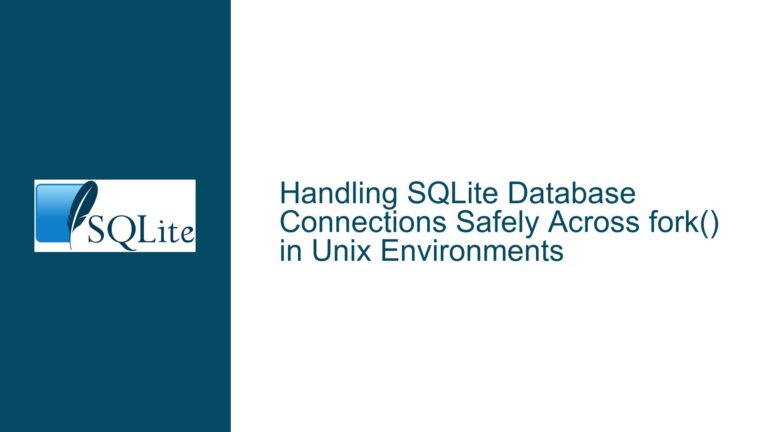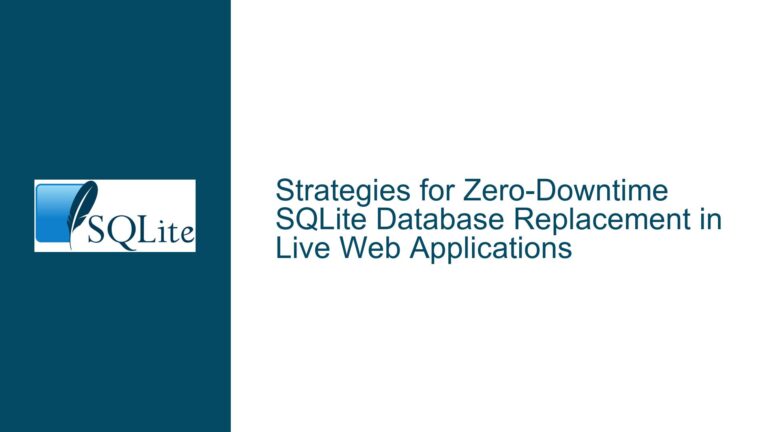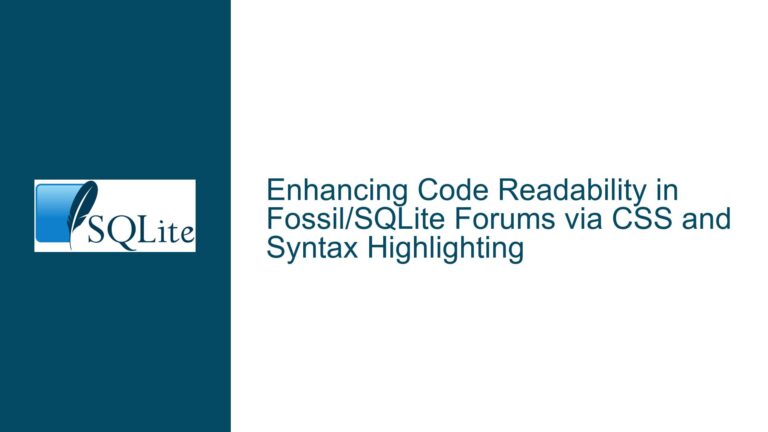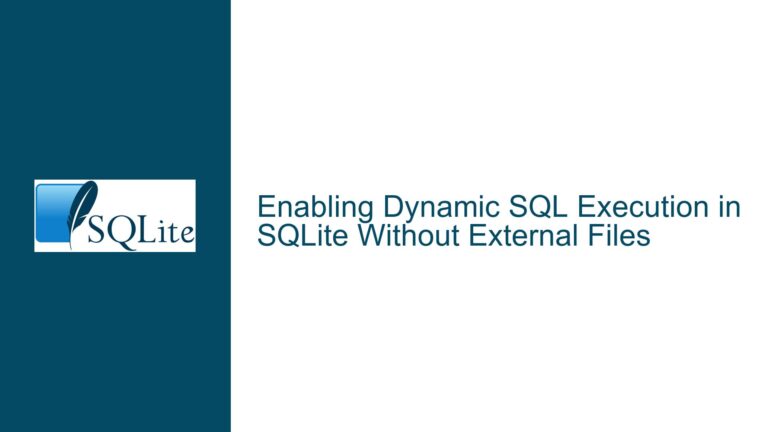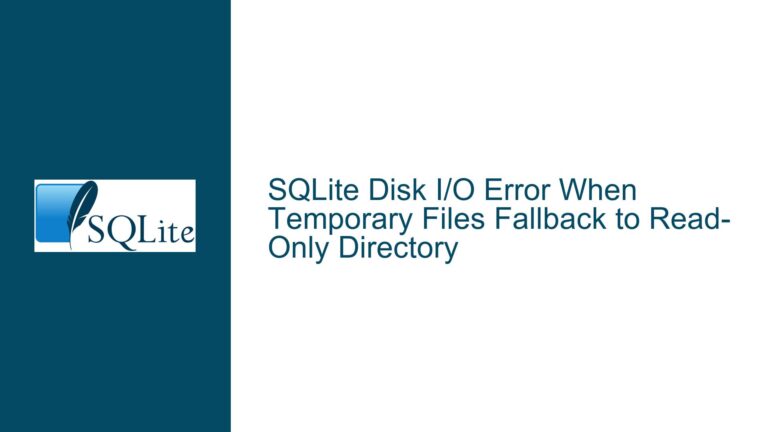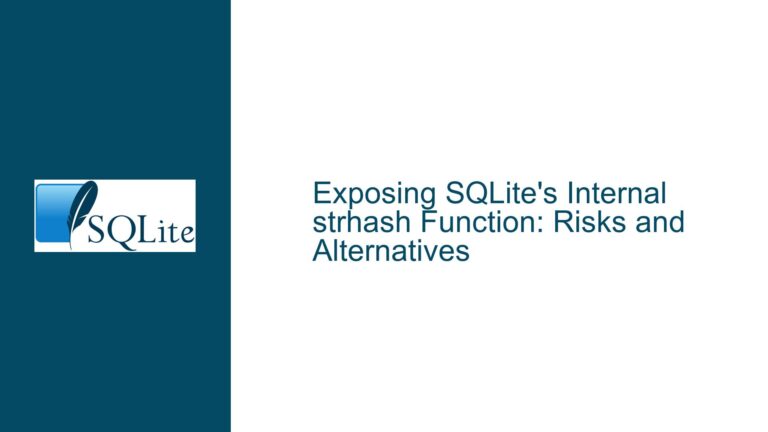Detecting SQLite Database Changes for Efficient Backup Scheduling
Understanding the Challenge of Reliable Database Change Detection in Backup Systems The core challenge in this scenario revolves around determining whether a SQLite database file has undergone substantive changes since its last backup to cold storage. This requirement emerges in multi-tenant environments where numerous databases require periodic archiving without wasting resources on redundant backups. The…
